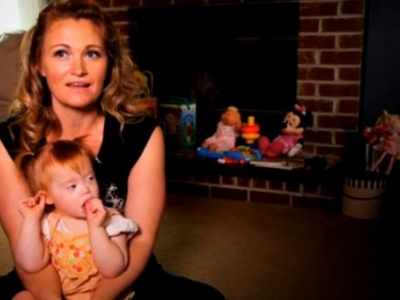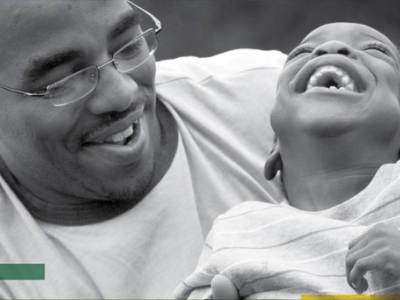
What if my son never learns to speak?
Igraine Lim from The 139 Collective reflects on parenting a 'non-verbal' child.
I long to hear my son speak.
I want to hear his thoughts. I want to know what is happening behind those big, beautiful eyes. Big, beautiful eyes that are a window into a mind I know is rich with activity, racing with dreams and ideas like a whole busy city during peak hour. A brain teeming with activity but shored up behind dam walls that no other human can cross. An inner sanctuary of opinions and desires, likes and dislikes, stories and creative plans.
My son is three and a half years old and has a rare genetic condition called PACS1 syndrome. He is currently considered ‘non-verbal’ with an uncertain prognosis on whether he will ever speak.
I know he has a mind rich with activity because I see its overflow. I see the creative new games that come out of it; the emotions that are triggered by more than just the amygdala; the richness of facial expressions and gestures; the persistent moments of leading me by the hand to see some new Duplo creation. I see the huge number of Auslan signs in his toolbox and his ability to use just a few pictures to ingeniously tell me a huge array of things. Just last week, his request for me to ‘turn off’ his brother had me hilariously participating in a comical search for the off switch on a small, overactive toddler. (A function that I have to say would be very useful at times!)
And yet, with all this non-verbal communication, I still long to hear his words.
I am constantly congratulating him on his ‘talking’ when he makes more vocal noises. I try to get him to copy sounds I make. I have researched the best alternative communication strategies for encouraging verbal communication. I am teaching him to use an app to express himself more clearly with the hope that this will give him more freedom to talk without feeling pressure and frustration during the process.
I know that this is a good thing to desire for my son and part of how I can love him well.
But at the same time, I know that I need to fight our culture’s tendency to glorify achievement and the trap of judging my ‘success’ as a parent by the ‘success’ of my child.
I long to hear my son speak because I want him to experience the gift of conversation. But I also long to hear my son speak, because I want people around me to know that I did everything I could to allow my son to ‘fulfil his potential’. I want to be congratulated on his progress. I want to be able to say that my child ‘beat the odds’ and that I can in some way pat myself on the back for being an exceptional ‘special needs mum’.
And on the flip side, I’m striving to avoid the crushing fear of others thinking that I failed my child—that I neglected some important therapy that could have been the key to helping him live a life as normal as possible. What happens if I let my son down? What happens if I don’t make the most of the ‘early intervention’ years?
I used to hear the term ‘tiger parenting’ and scoff at the thought that someone could get so wrapped up in their child’s success that it would lead them to devote hours of time to pushing their child to be constantly achieving some new skill. But a question has been on my mind lately. A growing niggling that perhaps there is a danger that I too could become a ‘tiger mother’ in a different guise. There is the potential that I could end up obsessively focusing on my child’s ‘achievement’ of learning to talk while missing something more important. Yes, the goal might be different to the tiger parent focusing on perfect scales during piano practice, but perhaps the dangers are remarkably similar.
The danger is that I could end up subtly sending the message to my child that his worth is based upon something that he must earn. And the danger is that I also could believe this lie—the lie that my value is found in my achievements—my achievements as a mother, my achievements in my career, my ability to ‘fulfil my potential’ and live up to the high and lofty goals that I set for myself.
But I serve a God who loves me simply because of who he is. He doesn’t care about my IQ score; where I sit on the bell curve of normal; how many dollars I can earn in a day. He doesn’t even measure my value by how much I am ‘living up to my potential’.
I have value simply because God bestows this upon me as a miraculous gift. And my beautiful son has value for that exact same reason.
God didn’t create us simply to ‘kick goals’. He created us for relationship—with him and with others.
It is a wonderful freedom to realise that the pressure is off. I don’t need to keep striving. I don’t need to be the perfect mother who gets everything right. I don’t need to buy into the lie that it’s all on me.
If my son grew up to ‘fulfil his potential’—to walk and talk; to gain some independence; to get a job that gave him some sort of income—but missed out on knowing the beauty of relationships, then I’m not sure what all the therapy will have really achieved. Aren’t the most wonderful things in life the things that happen when two people interact? When we are known by another person? When we savour the joy of simply being together?
And who better to know my son than his heavenly Father who created him inside and out? God knows my son’s thoughts better than I will ever know them. He knows him because he made him and he loves him and he has good plans for him. In fact, Psalm 139:4 tells me that God knows our words before they are even on our tongue.
And so, while I continue to pray that my son will learn to speak and I continue to help him practise using his communication app, I do this knowing that ultimately these things are subordinate to something better. Something richer. Something more worthwhile and joyful and wonderful.
Ultimately, we are made for relationship with God and with others. As Jesus said:
‘Come to me, all you who are weary and burdened, and I will give you rest. Take my yoke upon you and learn from me, for I am gentle and humble in heart, and you will find rest for your souls. For my yoke is easy and my burden is light.’(Matthew 11:28–30)
And while I remember this for my son, I also remember this for myself. My purpose in life is to live in communion with my God, wholly dependent upon him for everything and wholly satisfied that relationship with him truly is enough.
---
Igraine Lim is married to Josh and together they have two young sons, Josiah and Elias. In 2019, they founded The 139 Collective, a support network for Christian parents of children with a disability. They are a part of St Paul’s Anglican Church in Castle Hill.

Hey! Is That How God Made Me?
From the youngest age, our children should know that they belong to God! He made them in wonderful detail-right down to the shape of their eyes, ears, nose and mouth. This delightfully playful book will enchant little ones ages 1-4, introducing them to their loving Creator.
For more articles from Growing Faith, subscribe to our monthly e-newsletter.
To hear about the latest books and resources from Youthworks Media, subscribe here.








